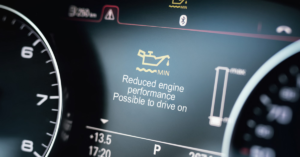As a resident of Calgary, Alberta, I understand how extreme temperature fluctuations can challenge a vehicle’s performance. From bitterly cold winters to hot summer days, choosing the right motor oil is crucial for protecting your engine and ensuring optimal performance. Two popular viscosity grades, 0W20 and 5W20, are designed to handle these conditions.
While both provide excellent engine protection, the subtle difference lies in their cold-weather performance. 0W-20 flows better in freezing temperatures, making it a great choice for harsh winters. Meanwhile, 5W-20 is versatile and works well for high-mileage vehicles, commuter cars, and trucks in milder climates. Relying on trusted sources like Car Garagee, you’ll see why understanding your region’s climate and your vehicle’s needs is essential for selecting the right oil.
Viscosity Explained
The numbers and letters on motor oil labels, such as 0W-20, are critical for understanding how the oil performs in varying temperatures. The W, meaning winter, and the number preceding it, indicate how well the oil can flow at low temperatures. For example, 0W provides excellent cold-temperature properties, ensuring quick lubrication during cold starts.
The second number, like 20, represents the oil’s thickness at higher operating temperatures, maintaining stability and protection.
0W-20 Motor Oil

- 0W-20 is a low-viscosity, fully synthetic motor oil specifically designed for modern fuel-efficient engines.
- Provides superior cold-start protection with a 0W rating, ensuring exceptional flow in cold temperatures for rapid lubrication of critical engine components during start-up.
- Performs reliably in Calgary’s harsh winters, where extreme cold demands effective oil flow.
- Enhances fuel economy by reducing friction, delivering better efficiency compared to thicker oils.
- Contributes to reduced emissions, making it an environmentally friendly choice for drivers.
- Always consult your owner’s manual to confirm compatibility and adhere to the recommended viscosity grade for your vehicle.
5W-20 Motor Oil
- 5W-20 is a popular low-viscosity synthetic motor oil known for its excellent all-around performance.
- Offers good cold-start protection with a 5W rating, ensuring adequate cold-temperature flow properties for most driving conditions in Calgary.
- Delivers a balanced performance between fuel economy and engine protection, making it a versatile choice.
- Suitable for a wide range of vehicles, including those with modern designs, ensuring compatibility and optimal performance.
- Ideal for drivers seeking reliable engine protection and efficiency across various conditions.
0W20 vs 5W20: What Do These Oil Numbers Mean?
Understanding the numbers in 0W20 and 5W20 is important for making informed decisions about your vehicle’s oil. The number before the letter W refers to the oil’s thickness in cold temperatures, where 0W20, being thinner, ensures better flow in cold-weather regions. The number following the W indicates the oil’s viscosity at operating temperatures, where both perform similarly.
These low-viscosity, high-quality synthetic oils are engineered to optimize fuel economy and maintain the engine’s highest efficiency. Based on my experience, 0W20 is perfect for extremely cold climates, while both multi-grade varieties can handle hot weather as well. Knowing these differences ensures your motor stays protected and performs optimally across conditions.
When To Use 5w-20 vs 0w-20
You might be unsure about the right situations to use these oils for different parts of your engine or under various driving conditions. If you’re still asking yourself whether 5W-20 can replace 0W-20, or wondering about the specific uses of 0W-20 oil, this guide will help clarify their purposes.
Viscosity and Cold Temperature Performance

The preceding number before the W in oils like 0W-20 and 5W-20 shows how well they flow in low temperatures. 0W-20, with its lower viscosity, flows easily, offering better cold-start lubrication and protection in extremely cold climates. It ensures the engine stays fluid and performs efficiently, even as oils naturally thicken when they cool.
Operating Temperature Viscosity
The second number, such as 20 in 0W-20 or 5W-20, represents the oil viscosity at normal operating temperatures. Both 0W-20 and 5W-20 have similar temps at these conditions, but 0W-20 is slightly thinner, ensuring smoother performance in modern engines.
Fuel Economy
The lower viscosity of 0W-20 allows for better fuel economy compared to 5W-20 due to reduced friction and drag in the engine. Both 0W20 and 5W20 synthetic oils perform efficiently at 20°C (68°F), but 0W-20, being thinner at cold temperatures, provides faster lubrication in the first few minutes after starting the car.
0W-20 is often specified for automobiles requiring slightly greater fuel efficiency, making it a suitable model for turbo-diesel engines as well.
Location
It is critical to determine where you operate your car when choosing between 0W20 and 5W20 motor oils. While both have identical temperature ranges for synthetic oil, 0W20 performs better in colder climates like Alaska and Maine, with a range of -40°C to 20°C, compared to 5W20, which works well in -35°C to 20°C.
For warmer regions like Florida, where temperatures can reach 68°F, neither oil may be optimal and should be used based on your vehicle’s specific needs.
Vehicle Compatibility

0W-20 oils, made from a synthetic base, are not conventional and are designed for newer vehicles with smaller turbocharged engines that prioritize fuel efficiency. It is crucial to ensure they are compatible by following the manufacturer’s recommendations in your owner’s manual, as many modern engines require this specific oil for optimal performance.
Owner’s Manual
Referencing your owner’s manual is a basic but often ignored step when selecting the right oil. Always remember to read the handbook to check the viscosity and see if both kinds of oil are on the recommended list. If so, you can alternate between them depending on the weather conditions.
Manufacturer Requirements
For a vehicle that is substantially loaded, the machine designer may prescribe a motor oil with high viscosity, often as thick as honey, to handle the load effectively. However, for engines that move quickly, a lubricant that flows and returns preferably faster is recommended for optimal performance.
Quality Testing
Choose an oil brand that displays the starburst sign and the API donut, ensuring it has the appropriate viscosity rating and has passed SL service tests. The API (American Petroleum Institute) certifies that the motor oil meets the current grade requirements. For European vehicles, look for the ACEA (European Automobile Manufacturers Association) certification, which is the European version of API standards.

Read More:
New Nissan Silvia: Is the Iconic Sports Car Making Comeback?
How To Put Your 2020 Alfa Romeo In All-Wheel Drive?
Is It Possible to Interchange the 0W20 vs 5W20 Oil?
The difference between 0W20 and 5W20 oil lies in their temperature range. According to the chart, both oils fall within a similar spectrum of performance, with 0W20 working in -40° to 20°C and 5W20 suitable for -35° to 20°C. In severely cold regions where temperatures drop beyond minus 25°, 0W20 is the better option.
While it is possible to exchange the two in milder weather, using the wrong variant in extreme conditions may cause the engine to suffer difficulties during the start. Always check your engine’s specific requirements before choosing a version.
Which One Should You Choose?
Manufacturer Recommendations
When choosing between 0W-20 and 5W-20 motor oils, your decision depends on the manufacturer’s recommendations. Always refer to your owner’s manual, which specifies the correct viscosity grade to ensure your vehicle runs efficiently.
Driving Conditions
For areas with extremely cold winters, such as Calgary, 0W-20 is the better choice. It provides superior cold-start protection and offers potential fuel economy benefits, especially in modern fuel-efficient vehicles.
Versatility in Milder Climates

If you’re driving in milder temperatures, 5W-20 is a reliable option. It delivers a balance of performance and cost-effectiveness, making it suitable for varied weather conditions.
Regular Maintenance and Expert Guidance
Regular oil changes are essential for maintaining engine health. Experienced technicians can help you select the right oil and follow proper service intervals to keep your engine running smoothly. Always prioritize the specific needs of your vehicle for long-term reliability.
FAQS
What Happens If I Use 0W-20 Instead of 5W-20?
0W-20 can be an acceptable substitute for 5W-20 as it provides better pumpability and faster flow in cold temperatures, ensuring better engine protection and improved fuel economy. However, always check your vehicle’s manual to confirm compatibility.
Is 5W-20 Better Than 0W-20 in Hot Weather?
Both 0W-20 and 5W-20 have identical properties at normal operating temperatures, offering the same efficiency and thickness. Neither is inherently better in hot weather, so follow your manufacturer’s recommendation for optimal performance.
Will Thicker Oil Damage My Engine?
Using thicker oil with a higher viscosity grade than recommended may not cause lasting damage but can reduce engine protection and efficiency.
Which Engine Oil Is Best for Summer?
For hot weather, an oil with a weight rating of 40 or 50-weight provides durable lubrication under high operating temperatures. While 10-15 weight oils may be sufficient, always choose the viscosity your manufacturer recommends.
What Are the Advantages of 0W-20 Oil?
0W-20 synthetic oil provides notable fuel economy gains and markedly improves cold start protection. It reduces wear on critical components like bearings, cams, and cylinders by flowing quickly during startup, even in freezing temperatures.
How Long Can You Run 0W-20 Oil?
For most vehicles, 0W-20 requires oil changes every 5,000 miles or 6 months, similar to 5W-20 or 5W-30 mineral oils. Always adhere to the intervals specified in your owner’s manual.

Mian Hashir is a passionate automotive enthusiast and the lead author at Car Garagee, a website dedicated to providing in-depth car reviews, maintenance tips, and the latest news in the automotive world. With years of experience in the industry, Hashir combines his technical knowledge with a love for cars to deliver insightful and engaging content. Whether you’re a car owner or a curious reader, Mian Hashir’s articles help readers make informed decisions, from choosing the right vehicle to understanding how to keep it in top condition.







